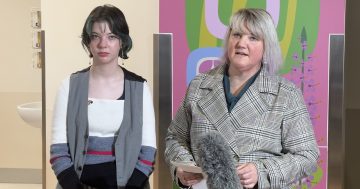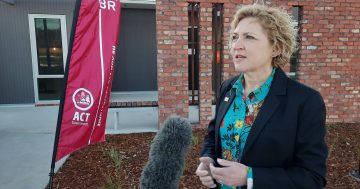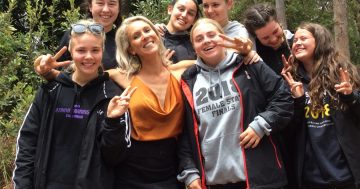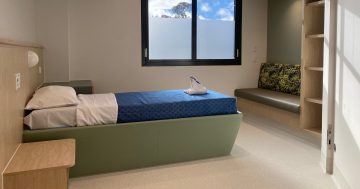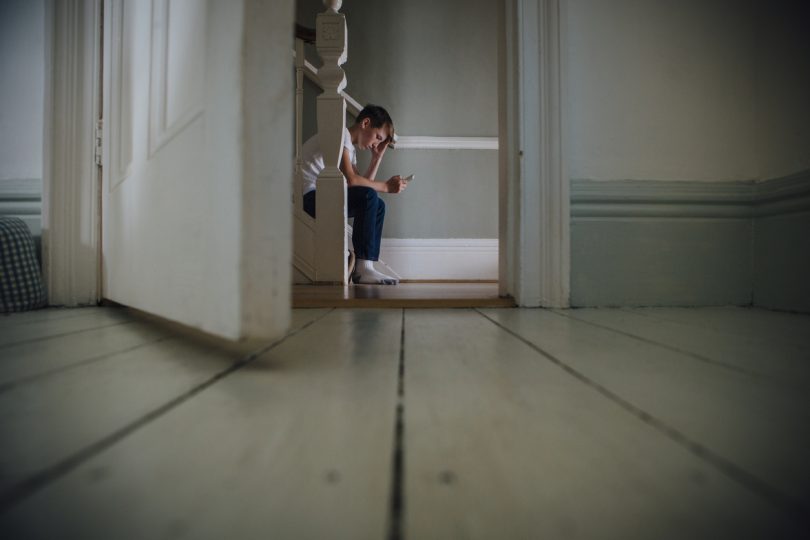
Social isolation is posing new risks to Australians as further lockdown and social distancing measures continue to be announced. Photo: File.
Half of the ACT’s young people and children say they have problems accessing mental health services and affording mental health services, while over a third said stigma had impeded their ability to get help, according to a new report from the ACT Government.
Three key recommendations were proposed in the Review of Children and Young People in the ACT to address community concerns after concluding “more is required to support children and young people in relation to their mental health and wellbeing”.
The report recommended making access to mental health services easier and more affordable, tackling the stigma and fear around mental health, and increasing support for people experiencing moderate to severe mental illnesses.
Children and young people also reported a lack of frontline services to care for people with moderate to severe mental illnesses.
“People give up on treatment and trying to get help because it’s difficult, costly and the waits are unrealistic,” one respondent between the age of 18 and 25 said.
The number of services available to children and young people should be expanded to minimise waiting times, another respondent said.
The ACT Office for Mental Health and Wellbeing said they would work towards developing and implementing an Online Youth Navigation Portal for the ACT to link young people with mental health support services and provide online resources to keep children informed about their mental health. The portal is set to be implemented at the start of 2021.
The Office will also work to build on mental health education and wellbeing programs in the Territory, including working with the Capital Health Network to co-design potential solutions and additional support services specifically for people experiencing moderate to severe mental illnesses by the end of 2020.
Half of mental illnesses present symptoms by the age of 14, and 75 per cent by the age of 25, but less than a quarter of young people seek professional help in treating these, says Ben McMullin, the ACT’s regional team leader for batyr – a not-for-profit organisation focusing on changing social attitudes and reducing stigma around mental illness.
“If we can deliver positive messages about help-seeking behaviour at an early age, we can decrease stigma and we can increase the proportion of people who reach out for help when they need it before things get more complex down the track,” he said
“We know from our programs that we can have a profound impact on the way young people view mental health and help-seeking. After a batyr program, around 70 per cent of students indicate they would be more likely to seek help if they were going through a tough time.”
Tailored mental health support for children and more options for kids at school were concerns expressed in the report, with respondent labelling the current system “a one-size-fits-all education stream”.
“Kids with mental illness need better school options and dedicated classroom support. Missed schooling is hard to manage for a child,” the respondent said.
Bullying was the top issue for children aged 12, with 60 per cent of respondents saying it most impacted their mental health and wellbeing, while more than a third labelled stigma as an obstacle to receiving support.
But with school kids now studying at home because of social distancing measures, isolation is a new challenge for students to balance in a post-COVID-19 society. To help manage feelings of loneliness and the stress of working remotely, batyr’s Chief Happiness Officer, Dr Tim Sharp, said it is now as important as ever to normalise these feelings of anxiety.
“To use a well-known phrase these days, it’s OK not to feel OK. That being said, there are definitely strategies that we can all use, including children, to manage anxiety and to maintain good mental health,” he said.
“Working from home can be a real change to people’s routines and might disconnect them from their support networks. Being at home and being isolated need not mean being lonely.
“Technology is allowing us to stay connected during this time so be sure to lock in some time for a virtual group chat with your loved ones.”
If you or anyone you know needs support you can contact Lifeline on 13 11 14 or visit lifeline.org.au.
batyr’s Being Herd workshops will now be delivered digitally to continuing to provide support and help to young people during the pandemic. More information can be found on their website batyr.com.au.













